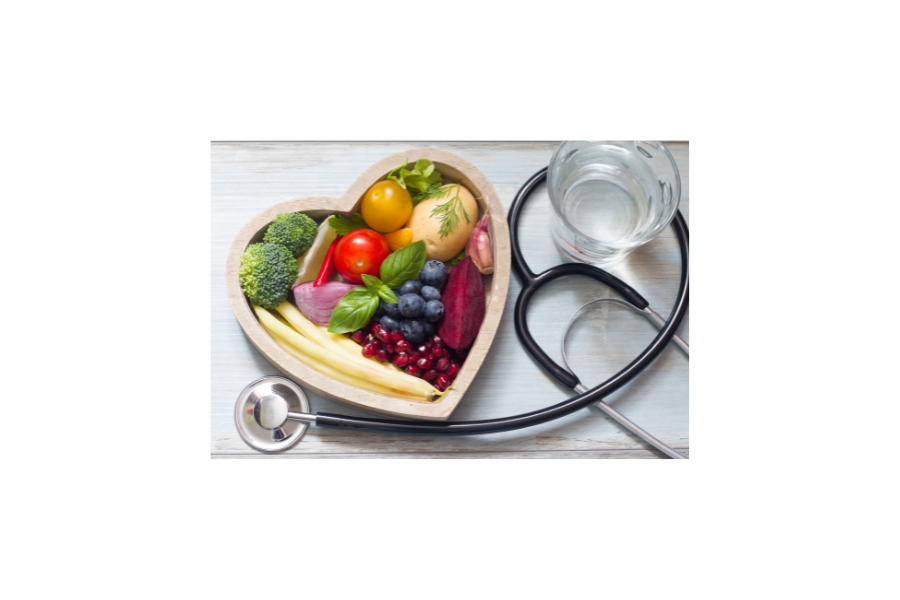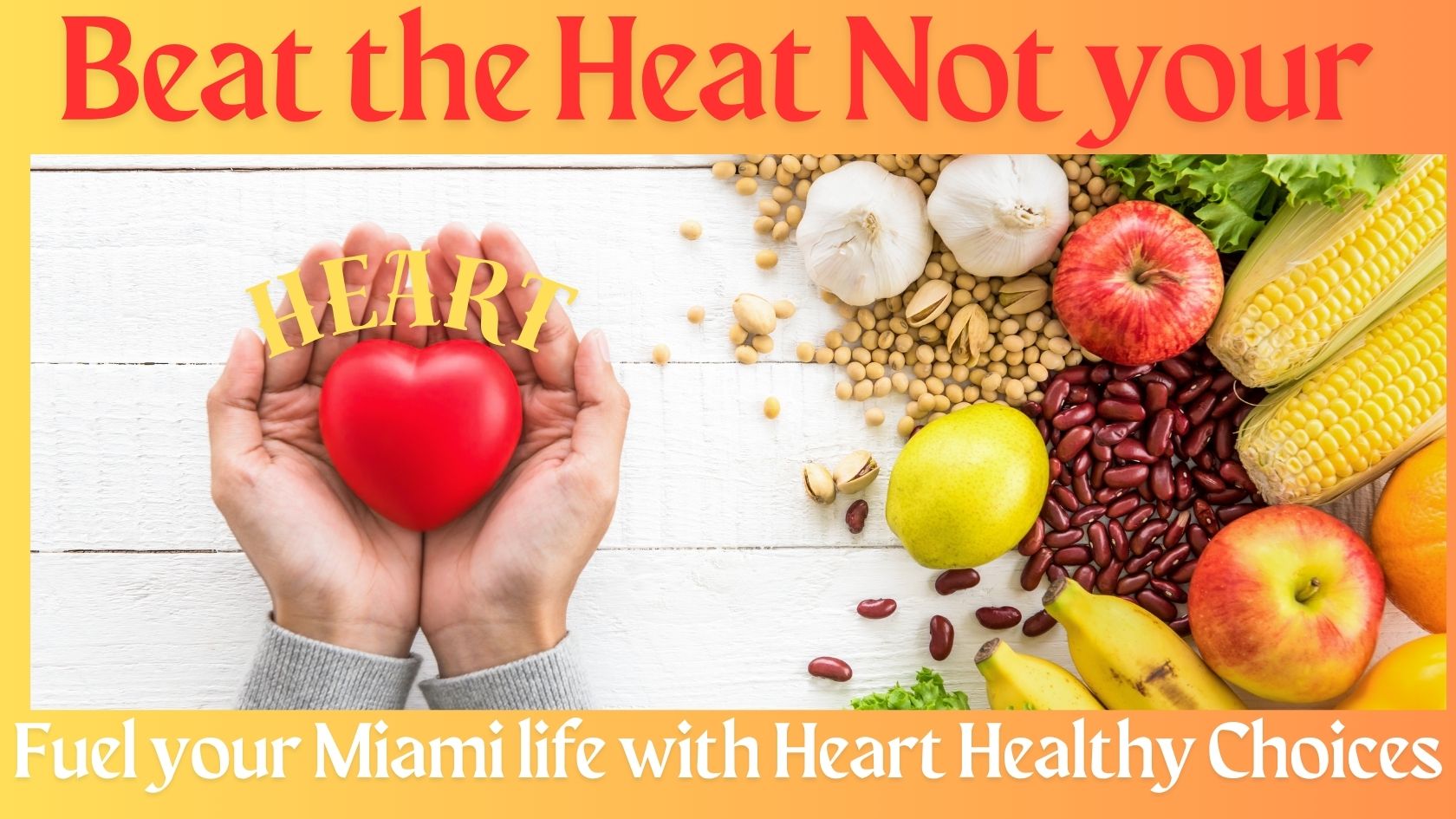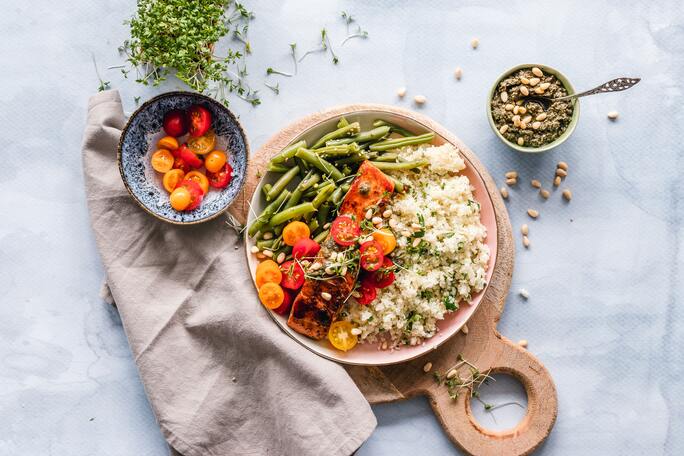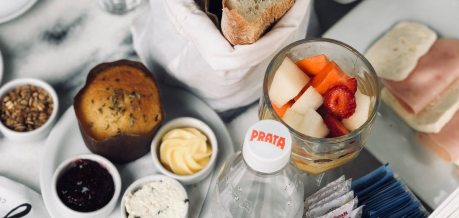Beat the Heat, Not Your Heart: Smart Eating for Healthy Blood Pressure in Miami
Miami’s sun-soaked lifestyle is one of its greatest attractions — warm beaches, vibrant food, and outdoor living all year long. But with that tropical heat also comes a hidden challenge: maintaining heart health and balanced nutrition in Miami’s climate. The connection between blood pressure and Miami heat is often overlooked — dehydration and high temperatures can affect your heart more than you think. Whether you’re a lifelong Miamian or new to the city’s bright rhythm, embracing healthy living in Miami means understanding how your Miami diet and wellness habits impact your blood pressure and overall well-being.
🌡️ Miami’s Climate and Your Blood Pressure
Miami’s hot and humid weather affects more than your comfort level — it can influence how your body regulates fluids and blood flow.When temperatures rise, your blood vessels naturally expand to help your body cool down. This can temporarily lower your blood pressure, but if you’re dehydrated or salt-depleted, your heart must work harder to pump blood effectively. On the other hand, chronic heat exposure combined with a high-sodium diet can increase strain on the cardiovascular system.Dehydration, salty foods, and alcohol — all common in beachside living — create a perfect storm for blood pressure fluctuations.The good news? With mindful hydration and smart eating, you can enjoy Miami’s sunshine without compromising your heart health.
🥗 How Diet Impacts Blood Pressure
What you eat daily plays a major role in maintaining normal blood pressure. Diets high in sodium, saturated fats, and processed foods increase fluid retention and cause your blood vessels to tighten. Over time, that raises your blood pressure and puts extra stress on your heart and kidneys.
In contrast, a balanced diet rich in potassium, magnesium, fiber, and antioxidants — like the DASH diet (Dietary Approaches to Stop Hypertension) — has been clinically proven to help lower and manage blood pressure.
Key foods that support healthy blood pressure include: 
- Fresh fruits and vegetables (especially leafy greens, berries, citrus)
- Whole grains (brown rice, quinoa, oats)
- Lean proteins (fish, chicken, beans, lentils)
- Nuts, seeds, and heart-healthy fats (avocado, olive oil)
Low-fat dairy or fortified alternatives
These foods naturally reduce inflammation, improve blood vessel function, and help flush excess sodium from your body.
🍉 Hydration Is Your Heart’s Best Friend
Miami’s humidity can make you sweat more than you realize. Even mild dehydration can cause your heart to work harder and your blood pressure to spike.
Tips for staying hydrated in Miami’s heat:
- Start early. Drink a glass of water as soon as you wake up.
- Infuse for flavor. Add slices of cucumber, mint, lemon, or berries for taste and electrolytes.
- Eat your water. Enjoy hydrating foods like watermelon, cucumber, oranges, and lettuce.
- Limit alcohol and sugary drinks. These can cause dehydration and raise your blood pressure.
If you exercise outdoors or spend long hours in the sun, consider a natural electrolyte drink — coconut water or homemade fruit-infused water are great options.
🍽️ Smart Eating in Miami’s Flavorful Food Scene
Miami’s multicultural food scene is full of delicious temptation — from Cuban sandwiches and plantains to seafood ceviche and tropical desserts. You don’t have to give up these favorites, but you can make heart-conscious swaps that let you enjoy the flavor without the excess sodium or fat.
💡 Heart-Healthy Miami Food Swaps:
- Cuban Sandwich: Choose grilled turkey or chicken breast with whole grain bread and light mustard instead of ham and processed cheese.
- Plantains: Try baked or air-fried versions instead of deep-fried to cut oil and calories.
- Seafood: Opt for grilled fish with lime and herbs instead of fried.
- Rice & Beans: Use brown rice or quinoa, and season with herbs, garlic, and lime instead of salt or bouillon cubes.
- Ceviche: A fresh, low-sodium option that’s naturally high in lean protein and flavor.
At restaurants, ask for sauces or dressings on the side — they’re often the biggest sources of hidden salt. And don’t be afraid to request a “light on salt” preparation; Miami’s chefs are used to accommodating dietary needs.
🧂 Managing Sodium Without Losing Flavor
Sodium is one of the most powerful influences on blood pressure. The American Heart Association recommends no more than 1,500–2,300 mg per day — roughly one teaspoon of salt.

Try these sodium-smart strategies:
- Replace salt with fresh herbs like cilantro, basil, and oregano.
- Use acidic ingredients — lime, lemon, or vinegar — to enhance flavor.
- Read food labels carefully, especially for sauces and condiments.
- Rinse canned beans or vegetables to remove excess sodium.
- Cook more meals at home — you control what goes in.
💃 Lifestyle Habits for a Healthy Heart in Miami
Diet is one piece of the puzzle. A holistic lifestyle supports long-term heart health — and Miami offers endless opportunities for movement and relaxation.
Move your body:
Take advantage of outdoor activities — morning walks on the beach, paddleboarding, or cycling along Biscayne Bay. Regular exercise improves circulation and helps lower blood pressure naturally.
Manage stress:
Miami’s fast-paced energy can be exciting but also draining. Try deep breathing, yoga by the ocean, or mindfulness meditation to reduce stress hormones that elevate blood pressure.
Limit alcohol and caffeine:
Happy hours and cafecitos are Miami staples, but moderation is key. Too much alcohol or caffeine can spike your blood pressure temporarily and cause dehydration.
Get enough rest:
Warm nights and social events can interfere with sleep, but consistent, restorative sleep helps regulate hormones that control blood pressure.
❤️ When to Seek Professional Help
If you’ve noticed symptoms like frequent headaches, dizziness, or chest discomfort — or if you have a family history of hypertension — consider checking your blood pressure regularly.Working with a registered dietitian can help you create a personalized plan that fits your culture, lifestyle, and health goals. In a city like Miami, where food is celebration, a dietitian can show you how to balance tradition with wellness.













